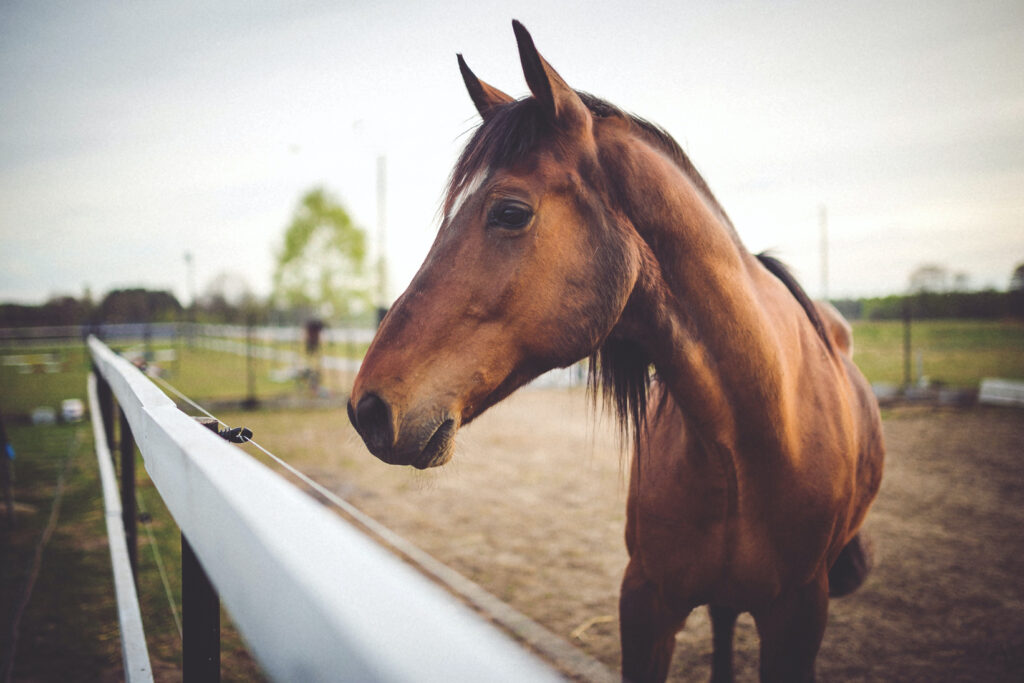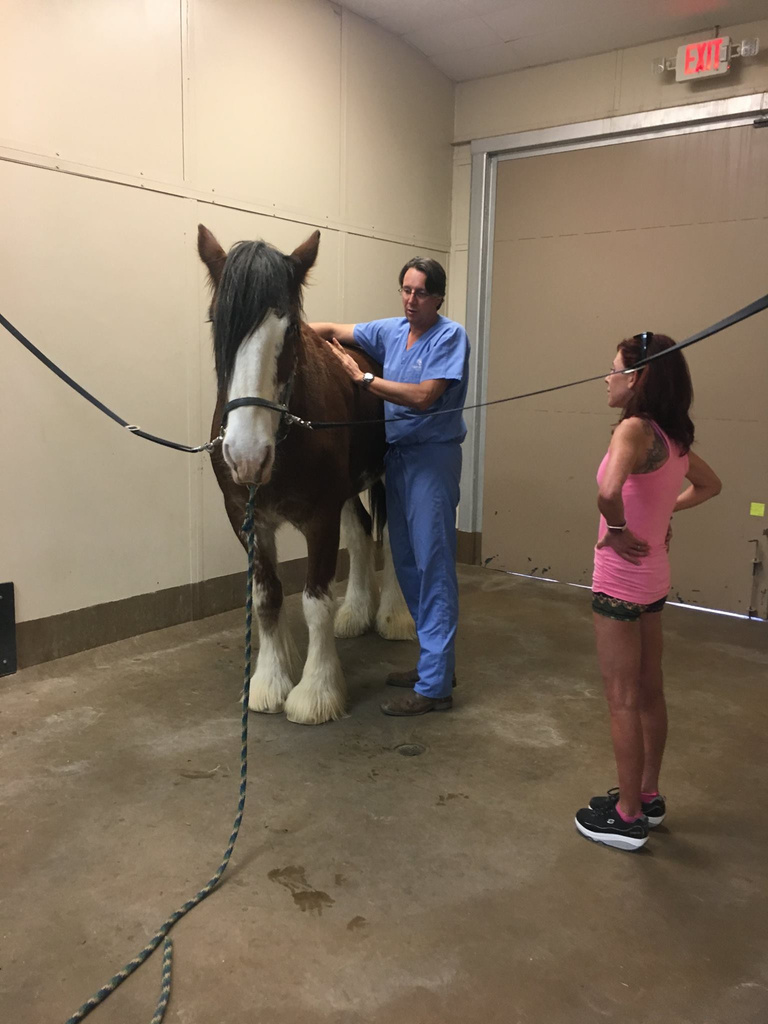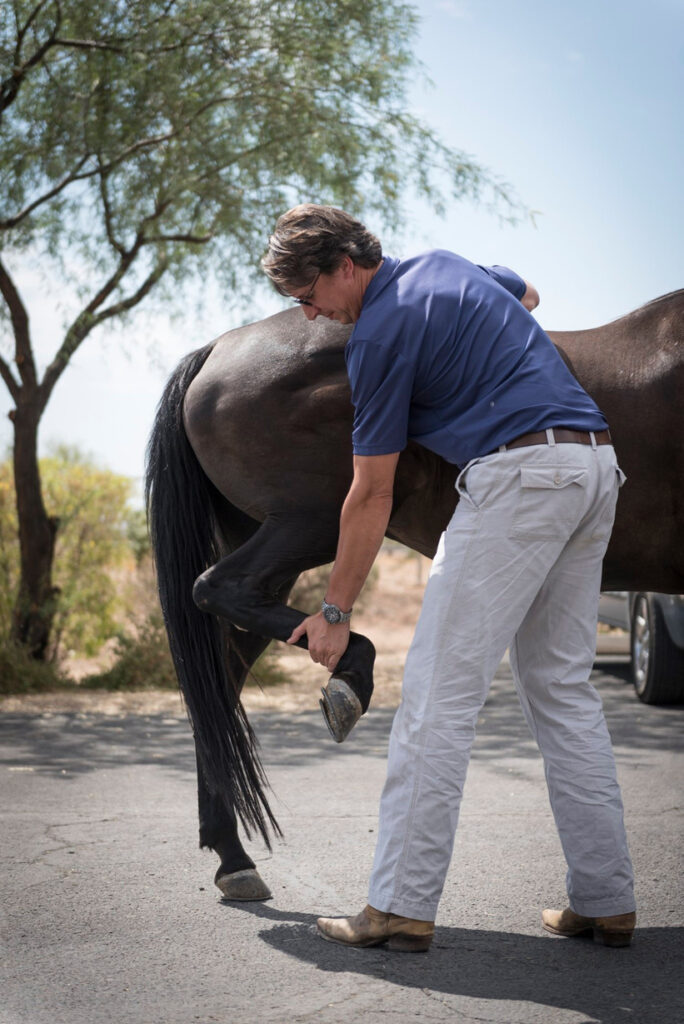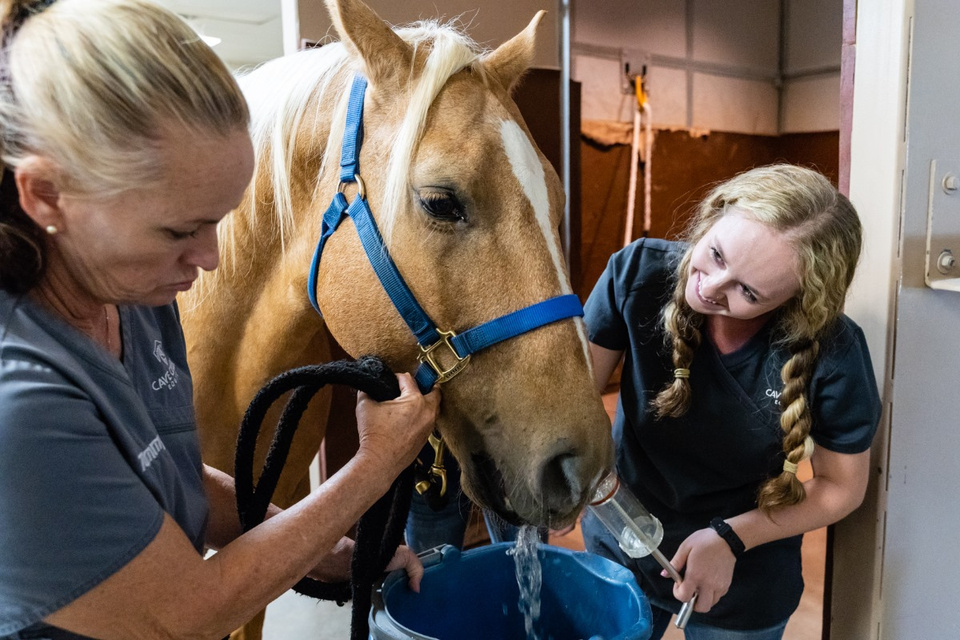While some of us look forward to the winter coming, this cold, wet weather and short days bring additional challenges and concerns to most equine owners. Whether in freezing, bitterly cold climates or wet, milder climates, winter can be stressful for horses. Though most healthy horses are already equipped with natural defenses against the harsh winter such as growing a tick coat and increasing body fat ratio, they still require extra attention to stay healthy and keep their condition at this time of the year. Before the temperature drops even further, fall is the most appropriate time to check on your horse and prepare him your horse in Winter, to face cold weather. It’s crucial to note a few easy tips that can help to keep your horse healthy and your winter stress-free. Our resident nutrition consultant, Dr. Clair Thunes, shares valuable insights: from nutrition considerations to preventing mud.

1. ASSESS YOUR HORSE’S CONDITION.
1
Be proactive. Cooler temperatures can result in weight loss and if your horse needs to lose weight, let your overweight horse burn some calories producing heat to stay warm. If your equine friend is thin, try to put pounds on him/her before winter sets in and weight gain becomes harder.
If you have a horse prone to weight loss, currently in poorer condition, or an older horse, work hard on adding some weight and condition them early to get them into a healthy body condition score coming into winter and help with insulation and energy reserves. Remember to make any feed changes slowly (1).


2. CONDITION TACK AND
SEND IN FOR REPAIR.
2
If you ride more in the summer than winter and will be letting horses down, now is an excellent time to send in tack for repairs, such as stirrup leather restitching or saddle billet replacement. If you will not use an item for a few months, condition it and store it. If you ride more on your horse in Winter, take equipment out of storage and prepare them for use (2).
CHECK BLANKET FIT/SEARCH FOR PRESEASON SALES.
3
Educate yourself on good blanket selection for your climate. Make sure existing blankets still fit as sometimes, blanket fit changes as horses gain or lose weight. If you need something new, now is a great time to hit preseason sales. To make the correct decisions on blanketing, there are five important points that you must consider: winter coat, age, body condition, shelter conditions, and the climate conditions of the location. A good winter coat will generally be enough to keep him warm, but if you have already decided to clip, or if the horse is old or in bad condition, you should consider blanketing and get the correct blanket before the winds blow colder. Correct blanketing can protect not only from the cold but also from the winds, rain, and snow. Remember that the horse has to be fully dry before blanketing. In addition, you should regularly check the coat condition under the blanket (3).
YOUR HORSE IN WINTER NEEDS TO BE WEATHER READY.
4
Preparing your horse in winter is even more important if you live in a wet climate, prepare now for mud. If your horses get turned out, what area will you make your sacrifice area? Consider placing fine gravel in heavy-traffic areas such as gateways and around water troughs. Check with local clean water agencies and university extension offices, as they often have excellent resources and help that is appropriate for your area. If you live in a region that gets snow and ice, stock up on vegetable shortening to pack into hooves to prevent ice balls from forming during turnout. Keep it somewhere where it will be warm enough to scoop out of the container (4).
With the stables, you should start thinking about winter when the weather is mild. This is the perfect time to remove any weeds that might surface, check the drains and ditches, and carry out any necessary maintenance that might affect the horse in any way. There are some things that are poisonous to horses, such as sycamore seeds and acorns, but they are abundant in the wintertime. If these trees are on your land, then it’s best to fence them off and make sure that the horses don’t go near there (5).
SCHEDULE A DENTAL AND HOOF CHECK.
5
Unlike fresh pasture grass, horses will have to consume more dry feed during the winter. Chewing the hay and grains properly will help them digest easier. So, you should get your horse’s teeth checked twice a year, and ideally once should be before winter. Make an appointment with your equine dentist as soon as possible and let them run a detailed dental check.
Every equestrian knows the importance of regular hoof checks to avoid hoof-related injuries and diseases. Horses should ideally get a farrier appointment several times during the year, and one must be before winter. After consulting your farrier, you can choose the best shoeing for the winter in your country. Your horse in winter, if it gets too snowy and icy, there should be proper padding under the shoes to prevent slipping or your farrier can recommend unshoeing until the icy season ends. Furthermore, you should check if the stall floors are appropriate for the winter conditions and check your horse’s hooves every day. Especially, a detailed check before and after riding is a must to avoid snowballs and bacteria growing in the hooves due to wet footing (6).


PREP YOUR HORSE IN WINTER- FEED SALT.
6
Another thing to consider for your horse in Winter is if you do not do so already, add 1 tablespoon of salt per 500 pounds of body weight to your horse’s ration, and provide an additional salt source. As the weather fluctuates through fall into winter, many horses do not drink as much. Add to that the transition from pasture to dry hay and reduced movement once stalled, and it becomes obvious why incidences of colic increase as we go into winter. Keeping your horses drinking is great insurance against impaction colic, and salt will help encourage them to drink (7).
PREPARE FOR WINTERTIME STORAGE.
7
Make it easy to access everything you need throughout the winter months by putting away the seasonal items you won’t need again until spring. By organizing your barn storage space, you can avoid wasting time searching for supplies and spend it grooming or caring for your horse. In conjunction with preparing your horse for winter, you can also be prepared by getting organized and ready to spend quality time with your equine friend this winter (8).
CONCLUSION
Throughout the year, tending to your horse’s needs requires you to be prepared for a variety of conditions. While wintertime may not be the time of year most equestrians dream about, it doesn’t mean your horse’s health and well-being should be neglected. When the temperature falls and the winds grow colder, you should be prepared with the appropriate gear, supplies, and accessories to keep your horse in Winter healthy and happy during the forthcoming months. Make sure to tick off the list above so you can be prepared well before the first frost. Use these tips to keep your horse feeling great and your mind at ease all winter long.
Cave Creek Equine is a forefront institution in giving you the best possible care for your horses. We are here to help take care of your lovely horses with our high-caliber team using our top-of line equipment and technology. We offer our equine veterinary services to horse owners in Scottsdale, Cave Creek, Carefree, Desert Hills, New River, the greater Phoenix area, and all the Westside area (including Wickenburg, Wittman, etc). Get to know more about Cave Creek Equine and our services.

1 – “Winter is Coming – Our Tips on Preparing your Horse for Winter.” Thompson and Redwood. 28 Apr, 2022, https://thompsonandredwood.com.au/winter-is-coming-our-tips-on-preparing-your-horse-for-winter. Accessed 29 Oct 2022.
2 – Thunes, Clair. “A Quick List to Help Prepare Your Horses for Winter.” The Horse. 09 Dec 2021,https://thehorse.com/194727/a-quick-list-to-help-prepare-your-horses-for-winter/. Accessed 29 Oct 2022.
3 “How To Prepare Your Horse For Cold Weather.” Equest Room. 30 Sep 2020, https://www.equestroom.com/blogs/latest/preparing-your-horse-for-winter. Accessed 29 Oct 2022.
4 Thunes, Clair. “A Quick List to Help Prepare Your Horses for Winter.” The Horse. 09 Dec 2021, https://thehorse.com/194727/a-quick-list-to-help-prepare-your-horses-for-winter/. Accessed 29 Oct 2022.
5 “How to Prepare Your Horse for Winter.” KX Tickets. 10 Oct 2019. https://thehorse.com/194727/ https://www.kxtickets.com/news-blog/how-to-prepare-your-horse-for-winter. Accessed 29 Oct 2022.
6 “How To Prepare Your Horse For Cold Weather.” Equest Room. 30 Sep 2020, https://www.equestroom.com/blogs/latest/preparing-your-horse-for-winter. Accessed 29 Oct 2022.
7 Thunes, Clair. “A Quick List to Help Prepare Your Horses for Winter.” The Horse. 09 Dec 2021, https://thehorse.com/194727/a-quick-list-to-help-prepare-your-horses-for-winter/. Accessed 29 Oct 2022.
8 Snell, Ashley. “Prepare Your Horse for the Winter Months” The Feed Room. 06 Nov 2014, https://www.horsefeedblog.com/2014/11/prepare-your-horse-for-the-winter-months/. Accessed 29 Oct 2022.







